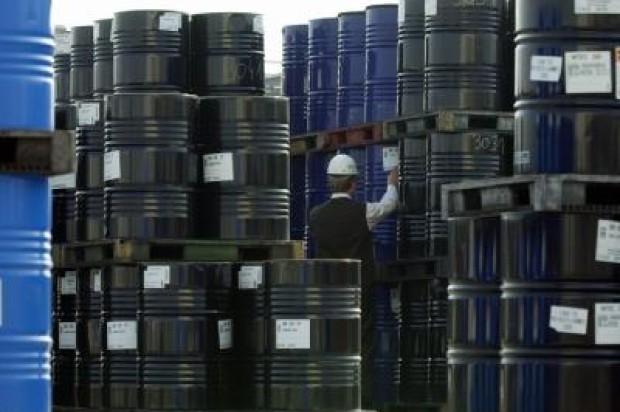
Several oil companies around the Bay Area are proposing upgrades or additions to their facilities, but environmental advocates said today that the projects will endanger the public by enabling increased refining of dirtier crude oil.
The Bay Area Air Quality Management District’s board of directors today received updates on the projects, which include the installation of rail operations at the Valero refinery in Benicia, the upgrade of an existing WestPac oil terminal in Pittsburg and the modernization of the Chevron refinery in Richmond.
Jim Karas, director of engineering for the air district, told the board at its meeting in San Francisco that the projects are driven by the demand for oil that is coming from new North American sources, as well as the need to upgrade aging facilities.
But members of the environmental groups, which included Communities for a Better Environment and the Sierra Club, said the projects are just attempts by the oil industry to ramp up the processing of heavier oil from tar sands and other sources.
The groups, who also held a rally outside of the BAAQMD headquarters before the meeting, said bringing the cheaper but dirtier oil into the Bay Area would endanger the environment and public health.
Andres Soto, an organizer in Richmond for Communities for a Better Environment, told the board that oil companies are “trying to sneak it in the back door, the side door, any way they can” and want to “piecemeal all these projects together” to improve the infrastructure to handle the heavier oil.
Diane Bailey, a senior scientist with the National Resources Defense Council, said adding the rail lines would lead to a greater risk of spills and that processing the sulfur-heavy oil would have “a profound impact to air quality.”
Bailey asked that the board put all of the projects on hold until thorough studies could be done on their impacts.
District staff noted though that the environmental review of each project primarily goes through the city or county where it is located and that the BAAQMD board does not have the authority to make decisions regarding permits for projects.
Rather, an air pollution control officer with the district makes the decision on each permit, according to staff.
Representatives from the oil companies overseeing the various proposals also attended today’s meeting and said they were not seeking to process more toxic oil and said there would be no net increase in emissions from the projects.
Valero spokesman Chris Howe said his company’s refinery would continue receiving oil that is “the same or similar to those we already receive,” and said the rail project would actually reduce emissions by replacing deliveries by sea that are more energy intensive.
Walt Gill, government affairs manager at Chevron, said the company’s plans, which include replacing a hydrogen plant and increasing sulfur removal at its refinery, would reduce emissions and cause the company to use less energy.
“It’s not about refining heavier crude,” Gill said.
Members of labor unions also came to the meeting and encouraged the air district to expedite the projects, which they said will provide needed jobs in the region.
The city of Benicia plans to issue a draft environmental impact report this month for the Valero project, while the Pittsburg oil terminal project is also reviewing its project, which ended its environmental review comment period in September, according to district staff.
Dan McMenamin, Bay City News









